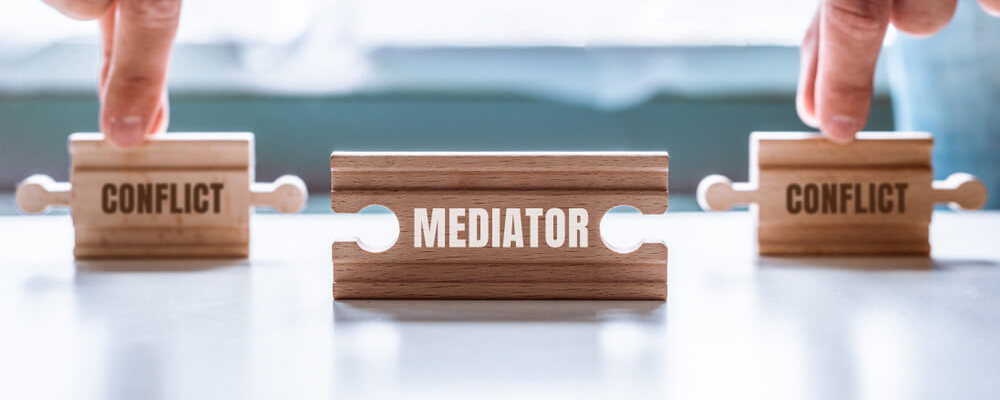Mediation is said to be quick and less expensive and a probable procedure, rather than other court proceedings also the mediation processes are of confidential nature, without the written consent of the parties none of the information that is being given by the parties can be disclosed further without the consent of the parties, any person who is in need of the court marriage lawyer in Delhi or the divorce lawyers in Mumbai can reach to Lead India to get their issue resolved.
In the Mediation proceedings all the cases of the civil nature such as recovery suit, injunction suit, any land-lord tenant issue, matrimonial issues, any property related disputes, dishonour of cheques and so on are being referred for the mediation to get speedy resolution and cost effective means to settle the dispute.
The court generally refers the pending disputes for the process of mediation, but the consent of both the parties is merely necessary but there are some exception to this that is the court may refer for the mediation without the consent of the parties if the court thinks that referring for the mediation is beneficial for the interest of justice Mediation and Conciliation Rules governs the Mediation process.
The parties to the dispute if they have any legal query to be resolved, they can ask the free question on LeadIndia.law and can get their query resolved by the legal experts.
Need A Legal Advice
The internet is not a lawyer and neither are you. Talk to a real lawyer about your legal issue

Types of the Mediation
- Mediation referred by the court:- Under the section 89 of the Code Of Civil Procedure 1908 the court can refer the case for the process of mediation
- Private Mediation:- These mediation are used for the disputes which are for the stage of pre-litigation
How to appoint a mediator?
The mediator can be appointed by the parties to the dispute if they mutually agree and if they are not agreed then the court may direct both the party to choose their or nominate their mediator who they deemed fit for them, in recent days almost courts have their mediation centre attached to the court, where the matter is referred by the court for the mee settlement.
Qualification of the person that is to be appointed as the mediator
- The retired judges of the Apex Court
- The retired judges of the High Court
- Retired judges of district and session court
- The person practising law for more than ten years of the experience
- Experts of law with at least 15 years plus experience
- The social workers
- The experts of mediation and conciliation
- The parties may agree on the procedures that the arbitrator will use in conducting the arbitration process.
If the parties do not agree on the specific procedures to be followed by the mediator, the mediator will follow the procedures outlined below. what it believes to be resolved, and its position on those issues, and any information the mediator reasonably needs to understand the issues.
The mediator will meet the parties at the agreed time, explain the entire mediation process, and establish neutrality and confidentiality. Momentum is then created for an open discussion of reconciliation. At meetings with the mediator, the parties may be accompanied by relevant attorneys.
The mediator may hold joint or separate sessions with the parties. He/She authorizes the parties to explain their grievances, demands, and expectations and to assist them in selecting appropriate options for amicable resolution. If an agreement is reached between the parties in part, the agreement will be in writing and signed by the parties or their constituent attorneys. If an attorney is representing the parties, the mediator can also sign the settlement agreement. A settlement agreement is then presented to the parties and the original is forwarded by the mediator to the referral court.
After receiving the Settlement Agreement, the Court will normally set a hearing date within seven days, but in no event should it exceed 14 days. On the date of such hearing, if the court is satisfied that the parties have resolved the dispute, the court will issue a decision following settlement.
If agreement cannot be reached between the parties, simply reporting disagreement/failure to reach agreement without giving reasons will remand the case to the referral court, whereupon litigation between the parties will commence Increase.
Lead India has the best team of lawyers where any person can hire a lawyer in Delhi. Lawyer in Kolkata, lawyer in Mumbai, lawyer in any part of India to get their issue resolved and dispute settled one can ask the free question to our legal experts regarding your query lead India will definitely help you in any such circumstances.





 Talk to a Lawyer
Talk to a Lawyer